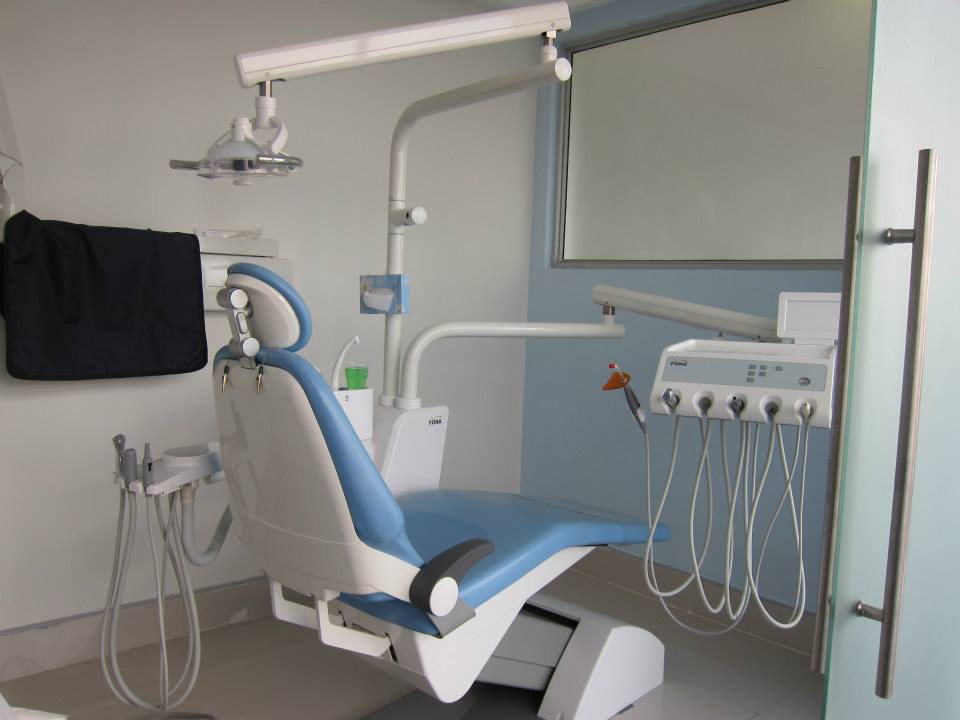Skye Dental has a mission to restore the smiles of East Africa’s citizens
By Brian Yatich
Being injected in the mouth is one of the most painful experiences one can endure, especially if you have to sit for an hour in a dentist’s chair. Research has shown that fear of pain is the main reason people do all they can to avoid seeing the dentist. Even those who schedule regular appointments cite fear of pain as a significant issue.
However, Dr Amin Nanji, a dental surgeon and implantologist at Skye Dental Clinic, says patients with dental anxieties or needle phobia need no longer fear as his new facility offers a pain-free dental procedure, thanks to a new technology called Dentalvibe.
Dr Nanji and his staff have immersed themselves in the cutting edge technology for the last five years since the clinic opened in Kenya. The equipment, which is designed to alleviate intra-oral injection pain is a cordless, rechargeable, hand-held device that delivers soothing, pulsed, percussive micro-oscillations to the site where an injection is being administered, eliminating the sting.
“We have gone the extra mile to be the first and only dental clinic in East Africa to offer the system. DentalVibe is a patented, award winning multi-purpose instrument from the United States. Its proprietary VibraPulse technology gently stimulates the sensory receptors at the injection site, effectively closing the neural pain gate. So all you feel are soothing pulsations before you go numb, ready for your procedure,” Dr Nanji explains.
Together with his director, Dr Sameer Yakup, who doubles up as a dental surgeon and worked at Aga khan Hospital for six years as a senior dental officer, Dr Nanji introduced the technology in a bid to stay abreast of developments in the health industry. Dr Yakup recommends that when you are grappling with dental problems or aches, instead of just removing the tooth or relying on painkillers, it is advisable to visit a dentist to avoid further infections.
“At Skye Dental, we are highly sensitive to our patients and their comfort, especially those with proactively underlying conditions. A lot of things can be done to make the patient comfortable, especially with new technology ,” he says.
“When you remove the tooth directly you might think the problem has been literally rooted out, but it might not actually be the tooth that makes the patient susceptible to dental disease and we tailor treatment accordingly,” he says.
According to data from dental health facilities, many countries in Africa, Asia and Latin America have a shortage of oral health personnel, limiting the capacity of systems to provide even simple pain relief or emergency care. For instance in Africa, the dentist-to-population ratio is 1:150,000 or higher, whereas in industrialised countries there is one dentist per 5,000 people or more. As a result, the majority of tooth decay is left untreated in Africa.
“Dental issues were not considered important when we talked about medical care but now the mindset has shifted. It’s an evolving trend. The teeth have become as equally important as other parts of the body,” Dr Nanji explains. He adds that dental care in East Africa is improving as more dentist embrace technology.
“The standard of dental care in Kenya is on an upward trend. Younger dentists are pushing this sector up and patients are becoming more knowledgeable about dental treatment,” he says.
Challenges
However, Dr Nanji says acquiring equipment in East Africa, especially in Kenya, has been a huge challenge given that the number of dentists in the region stands at around 1,000, which signifies too small a market for any supplier to have stocks here. “The cost of dental procedures is expensive.
If the disposable incomes of citizens in the region is anything to go by, a lot of people cannot afford a visit to the dentist and resort to unconventional methods,” he says He also says he is disappointed that dentists focus more on urban areas like Nairobi, Kisumu and Mombasa, leaving the other counties to their own devices. He decries the lack of inappropriate programmes and facilities to train dental nurses in the region.
“Sometimes dental clinics have no choice but to train their personnel in-house,” he says. “The west has more disposable income, they are more into looking after themselves healthwise, the media as well as dental professionals send information to their clients and their technology is of a very high calibre. They also have a lot of insurance driven systems where employees are on mandatory dental plans,” he says.
Coupling his orthodontic skills and artistry, Dr Nanji is affiliated with another dental centre called Implant and Dental Centre and has done extensive training in implantology in several countries including England, Germany, South Africa, Italy and the US.
He is also recognised as a member of the International Congress of Oral Implantology with the status of diplomate. Skye Dental is verified by ICOL Society and specialises in braces for children and adults, besides basic general dental procedures.
Having done six successful implants in Kenya, Dr Nanji now looks to extend his implantology skills into East Africa and is hopeful that the standard of dental health care in the region will improve.
“Space age technology in medicine is growing and a time will come when teeth will no longer be replaced with artificial implants. We are now looking at stem cell technology, where your stem cell is injected into your bone and your tooth will grow,” he says.

